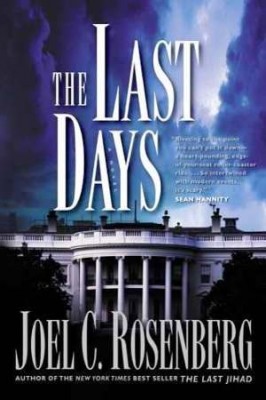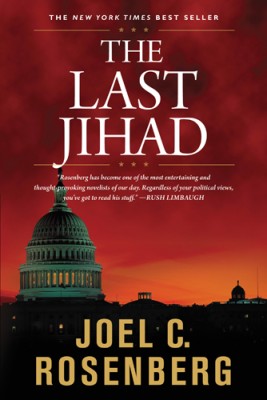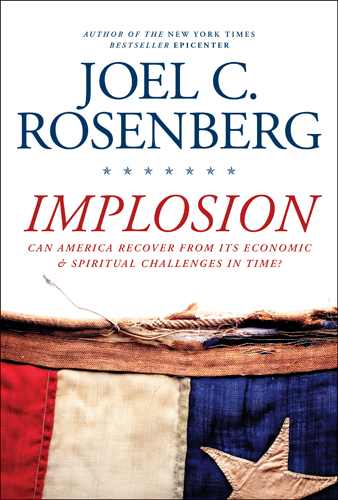 The Last Days is actually the first book by Joel C. Rosenberg that I’d read. As mentioned previously, though this is the second book in the actual series, it is the one I first got my hands on. Out of all the books in this series, the plot in this work is probably the most linear and simple to follow. Several main antagonists are introduced and detailed out, the main protagonists are built upon from The Last Jihad, and the more minor characters are also laid out before the reader in a very thoughtful manner.
The Last Days is actually the first book by Joel C. Rosenberg that I’d read. As mentioned previously, though this is the second book in the actual series, it is the one I first got my hands on. Out of all the books in this series, the plot in this work is probably the most linear and simple to follow. Several main antagonists are introduced and detailed out, the main protagonists are built upon from The Last Jihad, and the more minor characters are also laid out before the reader in a very thoughtful manner.
Book two in Rosenberg’s political action thriller series that highlights the lives of Jon Bennett and Erin McCoy takes a swing to the war-ridden territory of the Gaza Strip. With Saddam Hussein’s regime overthrown in Iraq, the world turns to the Presidents of the United States and the European Union to bring a final, lasting peace to the Middle-East. This is seeming more and more likely to be accomplished until a series of events take place in Gaza that rivet the world; but in fact are just the beginning of a massive conspiratorial plot to destroy the free people of the world.
Bennett and McCoy are right in the middle of the peace process: appointed by President MacPherson of the United States to oversee a hopefully lasting peace and cooperation between the Israelis and Palestinians. Also appointed to join the peace process are two very influential figures respectively for the Israeli and Palestinian people: Dmitri Galishnikov and Ibrahim Sa’id. The negotiators unfortunately find themselves in the midst of a violent plot against peace; yet going through these events together bring the two sides closer together, allowing them to discuss differences and lay out a road map for peace.
I feel that Mr. Rosenberg presents a very accurate picture for main setting of The Last Days: the Gaza Strip, and specifically Gaza City. Though I have never visited there, it seems to be painted in a very real-to-life way to make the reader sympathize for the citizens that live there, as well as see the difficulty of introducing democracy and peace to a war-torn people.
As the narrative drew to its climax, I noticed just how much I enjoy Joel Rosenberg’s style of writing. He writes intriguing plots that, while complex, also seem realistic and honest. The spiritual plot also begins to first develop in the lives of the main characters in The Last Days. I feel that this is the book that “gets the ball rolling” in the lives of Jon and Erin. The remainder of the works in this series can be very emotionally driving at times, and this book lays the groundwork for Mr. Rosenberg to be able to weave in the complex spiritual and emotional plots that cap the series.
Of course, I am glad that I was able to read this via my Kindle, as well as listen to it with my wife via our Audible subscription. The reader was solid, easy-to-understand, and surprisingly precise with his pronunciation of some words in the Semitic languages and Russian. It is a joy to read an exciting, intelligently written, and well plotted book. Though it is best to read The Last Days second in the series, it ended up being fine with me coming back and reading The Last Jihad last, after reading this. Again, you won’t regret picking this up, taking a week or two, and reading The Last Days.


